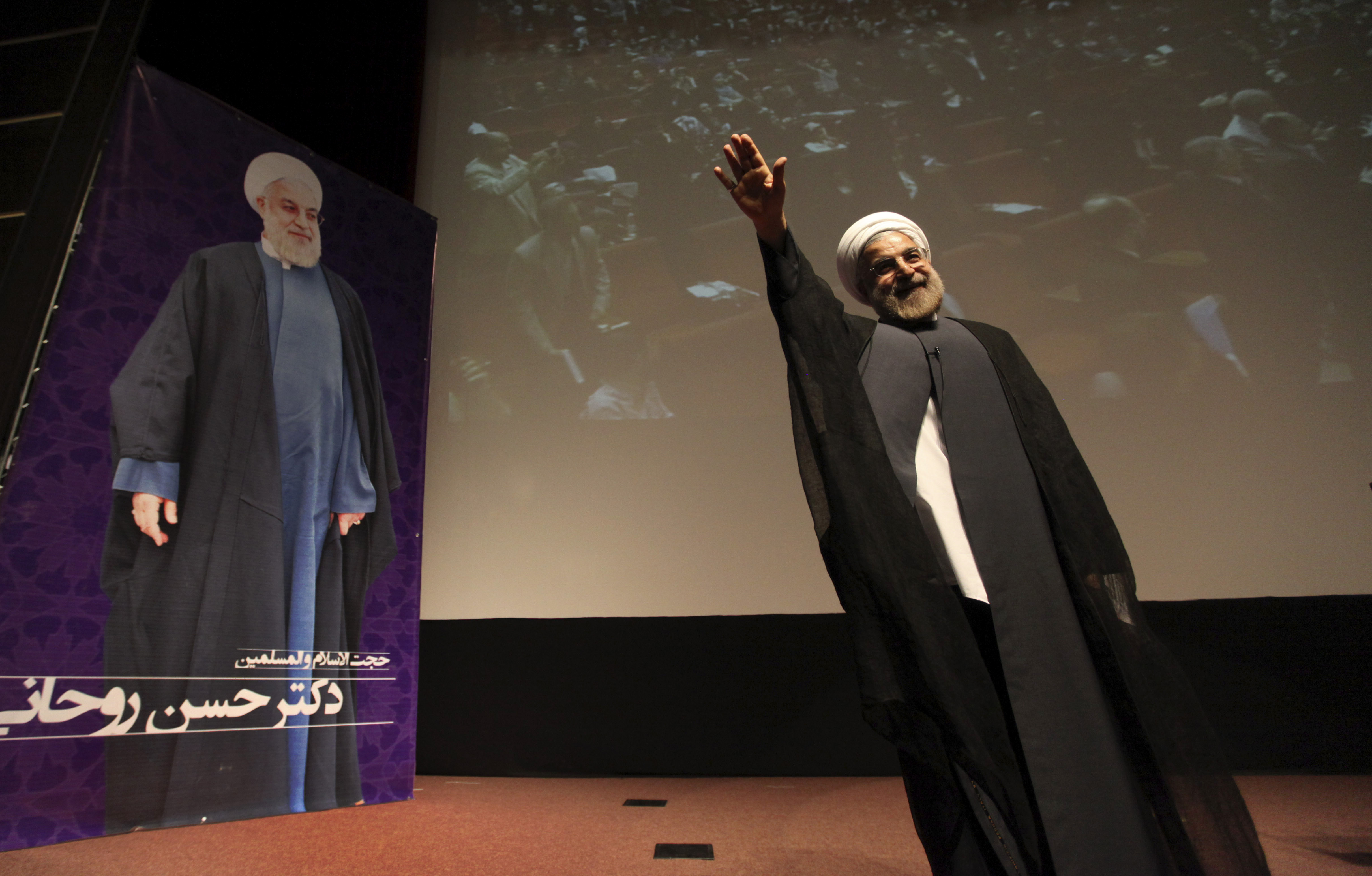All it took was a moment of levity on social media to clarify a serious subject.
Videos by Rare
“A free tweet for somebody more hawkish on Iran than me,” I joked on Twitter. “If Iran likes the nuclear program that it has, it can keep it.”
Eagle-eyed readers quickly pointed out that this wasn’t an original joke. Variants of the line had been used dozens of times, as conservatives criticized the U.S. talks with Iran then taking place in Geneva. The negotiations ended without an agreement to stop Tehran from building a nuclear bomb.
Polls show that the American people are starting to catch up with conservatives in their distrust of President Obama. The main reason is his broken promise that satisfied consumers would be able to keep their health insurance plans once Obamacare took effect. And this “read my lips” moment may be the least of Obamacare’s problems, as cancellation notices outnumber new enrollments in the rickety health care program.
So it wasn’t surprising that conservatives didn’t trust Obama on Iran, fearing the talks would end up being the foreign-policy equivalent of Obamacare. Think of the ineffectual diplomacy aimed at North Korea’s rogue nuclear program, except replace Jimmy Carter with John Kerry.
Even the French, who helped scuttle any deal, were better trusted by conservatives. After the Socialist government’s objections to a possible treaty became known, the Wall Street Journal editorial page cheered, “Vive La France!”
The Obama administration is ideological and incompetent. Encouraging presidential election results aside, the Iranian government is a terrorist-supporting bad actor on the world stage. But the United States has two interests in Iran, difficult to reconcile but both vital: avoiding an Iranian nuclear bomb—and avoiding war with Iran.
Those who oppose talks with Iran, or who favor them only under conditions no Iranian government could realistically accept, are leaving war as the only option. But can the United States afford another costly war in the Middle East?
It is not clear that limited strikes will be sufficient to halt any Iranian nuclear program. The result may well convince Tehran to redouble its efforts, looking at North Korea and seeing the bomb as the only form of deterrence against the United States. It could also reverse the growing anti-mullah sentiment among the Iranian people, rallying them against Washington and behind the ayatollahs instead.
If targeted strikes, like those the Obama administration envisioned in Syria, do not suffice, does the U.S. have the capacity for a wider war after a decade in Iraq and Afghanistan? It is hard to see such a military intervention remaining a limited and winnable war for our country.
This is not a hypothetical discussion. A bill that would authorize the president to use military force in Iran if discussions broke down has been introduced in the House, with 28 co-sponsors by the end of October. Iran saber-rattling by Republican lawmakers is on the rise.
“If nothing changes in Iran, come September, October, I will present a resolution that will authorize the use of military force to prevent Iran from developing a nuclear bomb,” Sen. Lindsey Graham vowed in a speech this summer.
But think for a moment: what president would be carrying out this use of force? The answer is Barack Obama. If conservatives understandably don’t trust Obama to handle talks with Iran, how can we trust him to run and win a war?
The president’s “kinetic military action” in Libya was a fiasco. U.S.-approved weapons for Libyan rebels ended up in the hands of jihadists. According to some reports, Libyan Islamist extremists have stolen even more advanced American weaponry. The country has descended into chaos, of which Benghazi is only the most obvious—and most deadly to Americans—example.
Obama’s proposed Syria bombing campaign was also an embarrassment. The president and secretary of state were indecisive, vacillating between a resolute call to arms one moment and muttering second thoughts the next. There was no plan and no persuasive case made to the American people.
Republicans in Congress—with the help of many Democrats—wisely shut down the White House’s Syria war fever, which is now a distant memory. These same Republicans should not want the operators of HealthCare.gov to have the power to insert our troops into yet another quagmire.
War with Iran would be the ultimate vote of confidence in Obama. It would protect and expand his national surveillance program, currently under scrutiny by a bipartisan coalition in Congress. It would move Obamacare’s failures out of the headlines, possibly endanger the sequestration budget cuts, and facilitate the growth of government.
When the Lindsey Grahams and John McCains successfully advocated the war in Iraq, we ended up with an empowered Iran abroad—and Democratic supermajorities at home. It turned out that the bureaucrats who can’t operate a functioning health care website now could not create a functioning liberal democracy in the Middle East then.
The unpopular, unsuccessful Iraq war discredited Republicans long enough for liberals and Democrats to win Obamacare. Let’s not repeat this mistake, or create new ones by letting the architects of a health care disaster here run an even riskier experiment overseas.
W. James Antle III is editor of the Daily Caller News Foundation and the author of “Devouring Freedom: Can Big Government Ever Be Stopped” (Regnery 2013). Follow him on Twitter at @jimantle.
Related articles
- BUCHANAN: A deal with Iran – or war with Iran? (rare.go-vip.net)
- Will playing nice with Iran pay dividends? (rare.go-vip.net)



